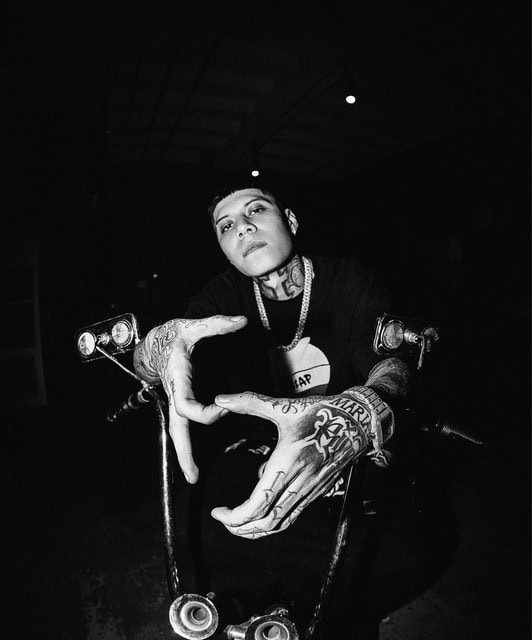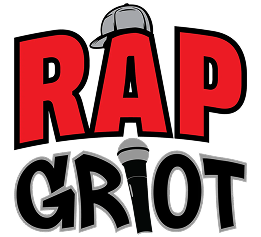
Hailing from Guanajuato, Mexico, Santa Fe Klan has rapidly become one of the most compelling voices in Latin American hip-hop. He’s not just a rapper, but a storyteller whose lyrics resonate deeply with a massive and loyal following, evidenced by his millions of followers across social media and streaming platforms. With a sound that uniquely blends traditional Mexican folk elements with hard-hitting rap beats, he has successfully carved out a distinct lane for himself in the global music scene.
His recent single releases like “Diamonds,” “Locos,” and “Solamente” serve as a powerful preview of his highly anticipated new album. These tracks, along with his celebrated collaborations with American icons such as Snoop Dogg, Rick Ross, and Saweetie, showcase his ability to bridge cultures and genres effortlessly.
After delivering standout performances at major festivals like Coachella and SXSW, Santa Fe Klan is now solidifying his crossover appeal in the U.S. market. We had the opportunity to sit down with the rising star for an exclusive Q&A, where we delved into his creative process, his strategic collaborations, and his vision for the future of Mexican rap.
The Source: Recently, you’ve collaborated with major artists like Rick Ross, Saweetie, and Manu Chao. How did these diverse collaborations come about, and what was the creative process like working with artists from different musical backgrounds?
Santa Fe Klan: Pues las colaboraciones en Estados Unidos surgieron de mi manager George Prajin. El proceso creativo fue diferente en cada sesión porque había traductores que nos ayudaron a comunicarnos. Muchos pueden pensar que eso fue un “problema” pero cada sesión fue única porque nos entendíamos a través de la música y cada canción lleva esa energía auténtica.
The collaborations in the United States came about thanks to my manager George Prajin. The creative process was different in each session because there were translators who helped us communicate. Some might think that was a “challenge,” but each session was unique because every person in the room understood each other through music, and each song carries that authentic energy.
Singles like “Diamonds,” “Locos,” and “Solamente” offer a glimpse into your new project. How do these tracks showcase the overall sound and themes of the album, and what message do you hope listeners take away from this body of work?
En verdad, son más que un adelanto de un proyecto. Quiero que la gente sienta la energía de cada proceso creativo y que escuchen más de los diferentes artistas y géneros que me gustan escuchar. Es como yo introduzco a la gente a mi mundo y vendrán muchas más colaboraciones y proyectos de otros géneros muy pronto.
Honestly, they’re more than just a preview of a project. I want people to feel the energy of each creative process and to hear more from the different artists and genres I enjoy listening to. It’s how I introduce people to my world, and there will be many more collaborations and projects in other genres very soon.
You’ve successfully bridged the gap between Mexican and U.S. markets, collaborating with artists like Snoop Dogg, Steve Aoki, and Saweetie. What challenges and opportunities have you encountered in navigating these different music industries, and what do you attribute to your growing appeal in the U.S.?
A dondequiera que voy yo siempre llevo a mi barrio conmigo. Yo nunca me olvido de donde vengo y el público se identifica conmigo porque se siente mi autenticidad. El único “reto” es el tema del idioma pero es un orgullo poder crear música y compartir a mi barrio, y de donde vengo con el mundo a través de mis canciones.
The real opportunity lies in showing up as yourself everywhere you go. Wherever I go, I always bring Guanajuato with me. I never forget where I come from, and the audience connects with me because they can feel my authenticity. The only real “challenge” is the language barrier, but it’s a point of pride to be able to create music and share my hometown and where I come from with the world through my music.
From Coachella to SXSW, you’ve delivered standout performances at major festivals. How do you prepare for these large-scale shows, and how do you connect with such a diverse audience, many of whom might be experiencing your music live for the first time?
En festivales tan grandes como Coachella o SXSW hay gente de todos lados, gente que le gusta bailar y conectarse con la música. Cada vez que subo al escenario, trato de transmitir mi energía y sinceridad con mis canciones. Quiero que cada persona, sin importar de dónde venga, se sienta parte del momento, que disfruten la experiencia al máximo y que se lleven un pedazo de mi barrio.
At big festivals like Coachella or SXSW, there are people from all over, people who love to dance and connect through music. Every time I step on stage, I transmit my energy and sincerity through my songs. I want every person, no matter where they’re from, to feel part of the moment, to enjoy the experience to the fullest, and to take a piece of Santa Fe (my hometown) with them.
With millions of followers across Instagram, YouTube, and Spotify, you’ve cultivated a massive and dedicated fanbase in a short period. How do you engage with your “cult following,” and how has social media played a role in building and maintaining that connection?
A mi gente le gusta cuando comparto mis vivencias, mi barrio y mi música porque es una manera de transmitir quién soy yo como persona. Siento que cada vez que subo algo es como subir algo para que mis amigos lo vean. Me conecto con mi gente y me gusta compartir con ellos.
People like it when I share my experiences, my hometown, and my music because it’s a way of showing who I am as a person. I feel like every time I post something, it’s like posting something for my friends to see. I connect with my people and I enjoy sharing with them.
As one of the few Mexican rappers to truly carve out a unique lane, what responsibility do you feel to represent Mexican hip-hop on a global stage, and what aspirations do you have for the future of the genre?
Siento una responsabilidad importante pero a la vez un orgullo de ser yo quien pueda guiar o servir de ejemplo para otras personas que sigan sus sueños y nunca rendirse. No importa que tan grande seas, siempre hay que ser humilde y nunca olvidarnos de nuestra esencia.
I feel a big responsibility, but at the same time, a sense of pride to be someone who can guide or serve as an example for others to follow their dreams and never give up. No matter how big you get, you always have to stay humble and never forget your roots.
